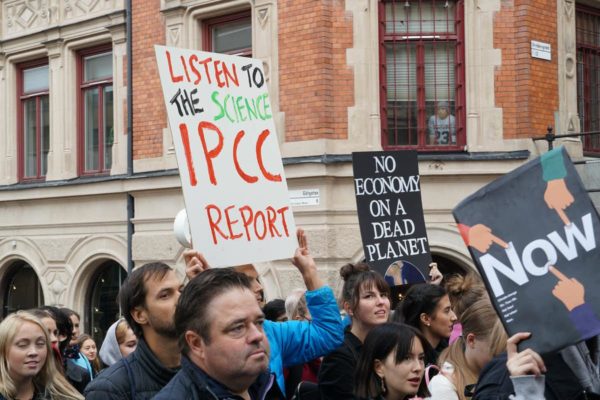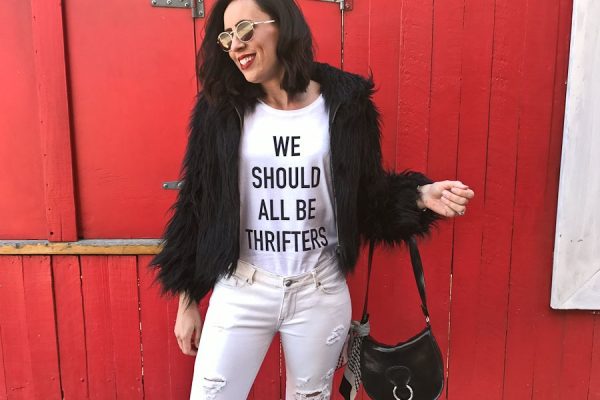Malawi; a nation of diverse wilderness, inherent optimism and radiant smiles. It’s little surprise Malawi is more affectionately referred to as, “The Warm Heart of Africa.”
But behind the warm smiles a deeper story unfolds. A legacy of corruption, a distraught economy, environmental destruction and the widespread proliferation of HIV-AIDS. Malawi is no stranger to struggle.
Unfortunately, many of the rural communities in Malawi, whose people are some of the poorest in the world, are also some of the most ill-equipped to deal with these mounting problems.
From these communities, however, comes another story. One of compassion, hope and sisterhood.
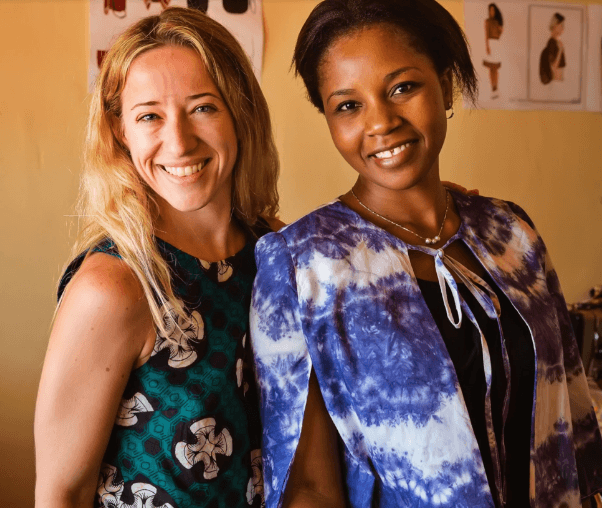
Enter Mayamiko – a collection of ethically-made clothing, accessories and homewares, made in Malawi, by the people of Malawi, for the people of Malawi. Each purchase filters back into these communities of Malawi where it’s needed most.
It’s thanks to the work of social entreprenuers, like Paola Masperi, founder of Mayamiko, empowering women in these afflicted communities who are giving rise to a movement of change.
But the story of Mayamiko goes beyond clothing. As you’ll come to learn, the beautiful colours and patterns are just one shade of the story.
WHERE IT ALL STARTED
Paola has been travelling to Malawi since 2005. Having a deep interest in humans right and sustainable development, she felt drawn to work with the women in Malawi who were in much need of a holistic approach to alleviate some of their struggles.
Her eye for fashion led her to discovering an incredible opportunity in these rural communities. Malawi clothing is well know for its exuberance. The bright colours, beautiful patterns and locally-made fabrics is so distinctively unique. Unfortunately, without support for traditional artisan techniques, many of these skills were being lost from one generation to the next.
And so sprung an idea.
In 2013, Mayamiko the label formed as an offshoot from their charitable project, The Mayamiko Trust.
Paola goes on to explain, “The opportunities many of us take for granted simply don’t exist in Malawi. Most people don’t have jobs as we know them with sick pay and pension schemes, and many survive off their own entrepreneurial activity such as selling produce.
However, this is not a reliable source of income, and so many people have to miss meals and skip school. Even those than manage to find education are often pulled out to care for family; society doesn’t provide them with choices.
With the addition of a staggering prevalence of HIV and other preventable diseases like TB and Malaria, there is an extra burden on families who are often needed to support their ill relatives.”
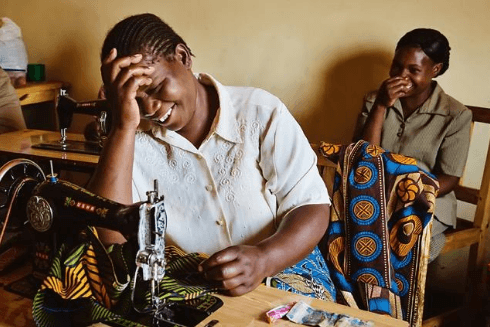

“Many studies have shown that women’s education has a ripple effect, improving not only their own lives and their families, but also helping the communities that they live in.”
THE SEWING SISTERHOOD
The landlocked nation of Malawi is one of the most poverty-stricken regions in the world.
According to UNICEF the literacy rate in Malawi for women is only 50%.
This education gap is one of the key reasons many women are inhibited in pursuing their own livelihood. To remedy this, the Mayamiko team started hosting workshops to empower these women with more in-depth technical training, entrepreneurship skills, financial planning and most importantly, to gain confidence.
Paola adds, “Many studies have shown that women’s education has a ripple effect, improving not only their own lives and their families, but also helping the communities that they live in.”
On the heels of this training, the women are financially assisted to purchase their own sewing machine. This affords them the opportunity to pursue their own endeavours or team with the Mayamiko Fashion Lab.
Their designs standout in their own right. Beautiful bright colours and patterns showcasing the many flavours of Malawi, artistically crafted with care and attention.
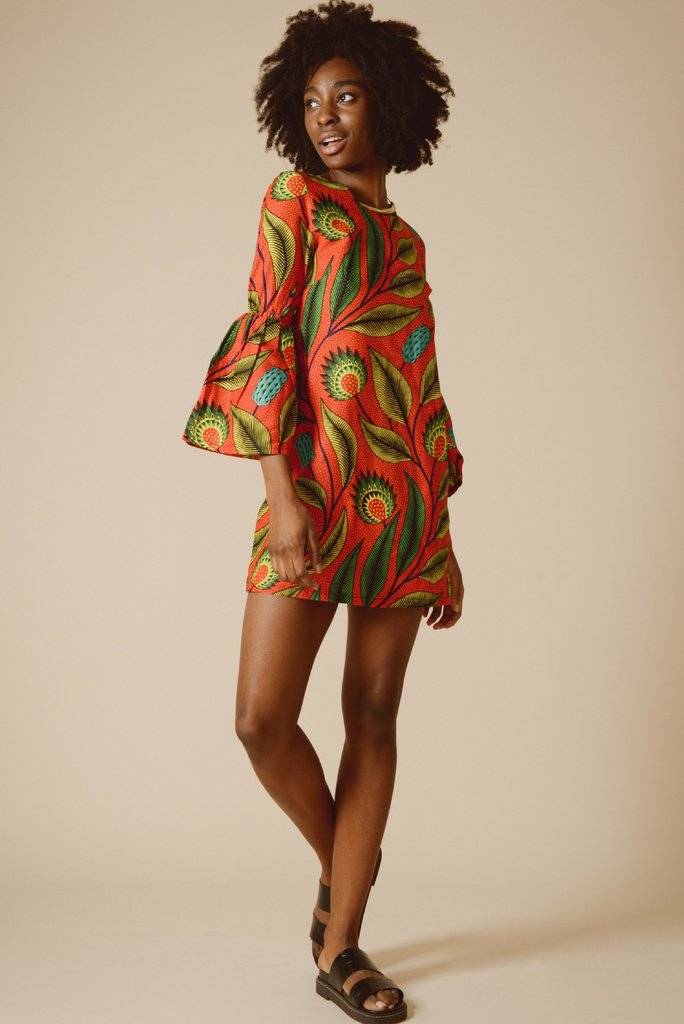
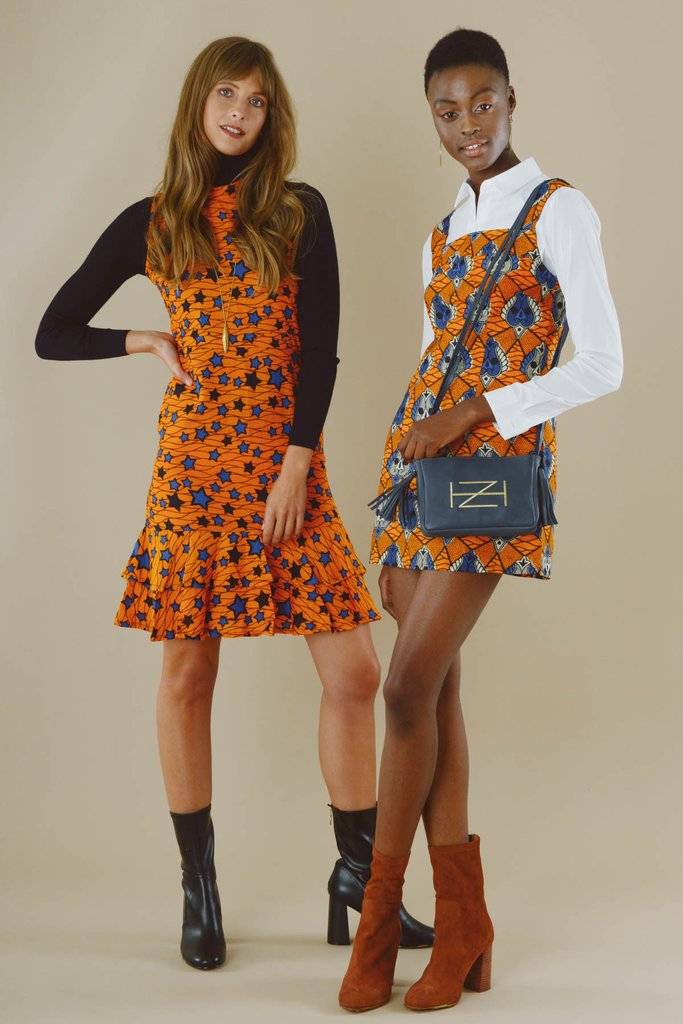
A LABEL WITH HEART
Nurturing the talents of these women, and ensuring employees receive fair prices for their work, benefits and security, has ripple effects for these communities.
Paola explains the business model, “Mayamiko the label places orders for products and collections from the lab which are paid for at a fair price. The label donates part of its profits to the charity directly, allowing for new programs and activities to be developed.”
Their hardwork has not gone unnoticed. As members of the Ethical Fashion Forums ‘Fellowship 500,’ and ‘I Prefer 30‘ movement, Mayamiko is at the forefront of the sustainable fashion movement. They have been widely recognised as a “Brand to Watch” that’s “Changing Lives” by various industry bodies.
But with great change comes great challenges and Paola has no shortage of hers to share.
“Running a business throws up constant challenges, you just have to deal with everything head on! From our workshop being broken into and months’ worth of work and fabric being stolen; to trying to get our head around the bureaucracy of running a business across continents in the right way. The list goes on.
With our 20km commitment, we are sourcing with very limited options and it is increasingly difficult to match those options with customers’ changing priorities. Our tailors can be absent for long periods due to disease or duties of care, to customers not paying for stock. These are just a few of the challenges we face.”
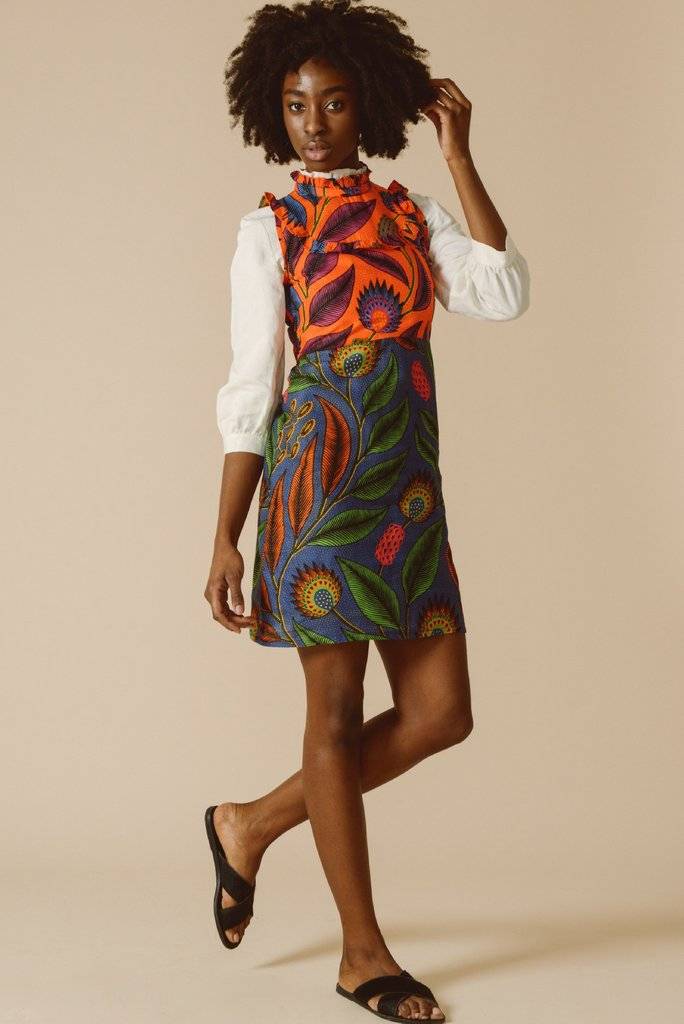
Mayamiko has worked on some incredible projects over the years.
From collaborations, one-off designs, upcycled ranges like Rebirth, and starting the Zero Waste commitment, they are moving from strength to strength.
“We knew that the project needed to start with a charitable mindset if we wanted to provide real sustainable income in Malawi.
At the very heart of it, there is a sole desire to help change people’s lives by giving them choices.
Choices come in the form of education, skills training, access to finance, and many other options that we often take for granted.”
Unfortunately, a lot of green-washing still exists within the industry as convoluted supply chains make it impossible for consumers to trace products back to their origins.
Paola explains, “The industry’s supply chains are often complex and it’s rarely possible to follow a product from seed to end life, making the backwards engineering of big brands difficult.”
“We knew that the project needed to start with a charitable mindset if we wanted to provide real sustainable income in Malawi."
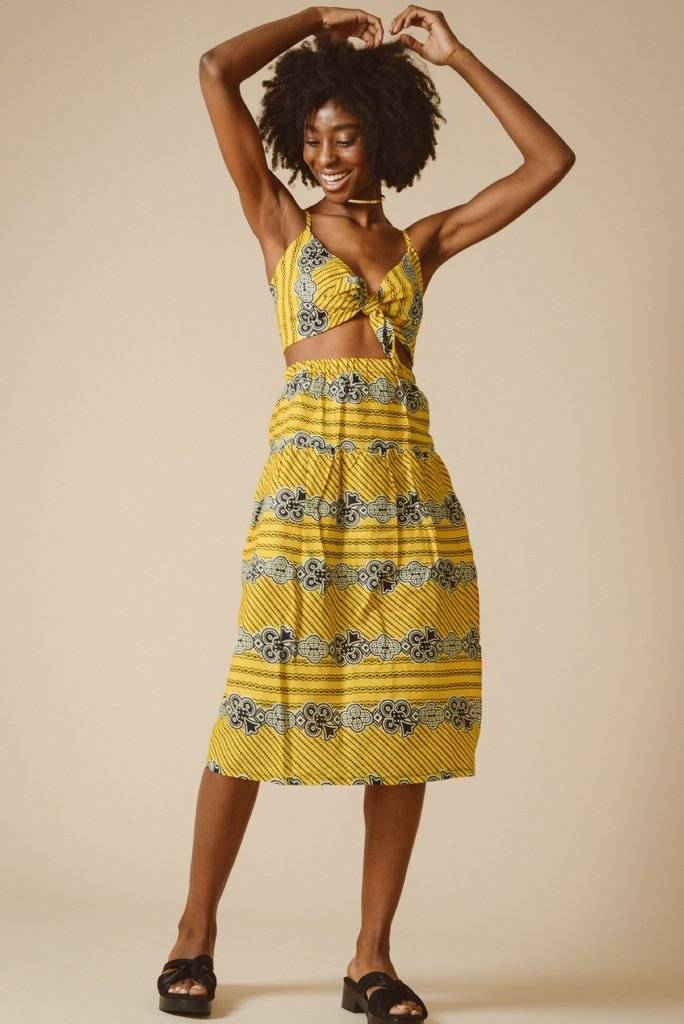
It’s stories like the Rana Plaza collapse in Bangladesh that killed over 1000 factory workers, that has sparked controversial debates about the role foreign bodies play in ensuring the safety and security of workers under their employment.
Paola acknowledges consumers aren’t turning a blindeye to this.
“There is greater discussion among consumers; especially since the events of Rana Plaza.
There is more of a consciousness of the problem at hands and our responsibility both as brands and consumers.
Consumers have the power to make a change by demanding more transparency – and I believe change is happening!”
BEYOND TOMORROW
A new collection is just on the horizon and Paola couldn’t be prouder of the women who have made it a reality.
Their future is bright and many more exciting new projects await them.
Paola elaborates, “These include a project with disadvantaged mothers in Sri Lanka where we are looking to use their amazing traditional batik techniques and hand lacing skills, launching the upcycled Italian silk collection as well as the opening of our eco-dying workshop in Malawi.
This for me would be a phenomenal achievement, one that has been many years in the making. So that’s incredibly exciting as it will allow us to offer our customers organic certified cotton dyed naturally, and we will be able to create even more jobs in the community.”
